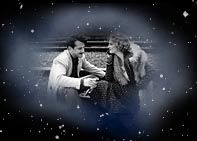

By Ira Gitler

If you are a student of jazz history, you are aware that Emmet Ray, the subject of Woody Allen’s Sweet and Lowdown, really didn’t exist. But he could have. He resembles many of the jazz musicians I knew in the 1940s, including the tenor who employed Redi-Whip, soon after its appearance on the market, in a non-dessert application; or the cats in a college combo who camped out on a Midwestern hill top for six hours until dawn just to jam on "The World Is Waiting For Sunrise."
Emmet Ray is quirky, perhaps, yet true to jazz life. At one point in his career he is living off the money earned by a couple of prostitutes, a practice not unheard of in jazz circles beginning with Buddy Bolden and Jelly Roll Morton. When I was in Chicago in the later 1940s, I encountered several local musicians who were "managers," a term Emmet also prefers to the phrase pimp. Like many jazz legends, Emmet is an anti-hero, but his guitar playing – beautifully ghosted by the highly artistic Howard Alden – makes up for his multitude of sins.
Emmet is also a traveler who not only tours America but has played extensively in Europe. The fictional guitarist lived at a time when jazzmen were first traversing the country, spreading consciousness of jazz even to American audiences who were beyond the modest reach of radio and recordings. This original American art form (notwithstanding historian Arthur Schlesinger’s comment that the only original American art form was film) not only spread across the country but to Europe in the 20s and 30s. The way was paved by such men as Louis Armstrong and Duke Ellington who were welcomed enthusiastically when they appeared on the other side of the Atlantic – Armstrong in 1932 and Ellington in 1933.
The audience for these giant talents included foreign musicians who modeled themselves after the American originators. Many Europeans played on a high level but only one became a major influence on American jazzmen – the gypsy guitarist, Django Reinhardt.
